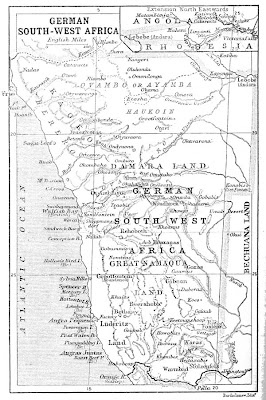The Neutrality Act was up for its second renewal. It was due to expire at midnight tonight. Both houses of Congress pass extensions of the Act.
In the House, there was not a single dissenting vote. In the Senate, there were those who voiced concern. It eventually passed in the Senate with a vote tally of 41-15. There were no abstentions.
Under the legislation adopted today, the President could proclaim also the "placing of restrictions on the shipment of certain articles and materials in the addition of arms, ammunition or implements of war from the United States, to belligerent states or a state where in civil strife exists, is necessary to promote the security or to preserve the peace of the United States or to protect the life of the citizens of the United States."
However, the resolution leaves to the discretion of the President the finding that the "cash and carry" step is necessary.
There was apprehension of the "cash and carry" clause. Mr. Vandenberg objected to the discretion which he saw as written all through Pittman's compromise resolution, on the ground that "the real war decision, so far as we are concerned is actually made when we choose our neutrality formula".
in the House there was virtually no debate.
The National Council for the Preparation of War issued a statement from its headquarters expressing gratification at the passage of the legislation. In the statement, the Council said "each neutrality law passed by Congress is stronger that last one, showing the determined pressure of the American people for protection against war."
Monday, April 30, 2007
Neutrality Renewal Rushed through Congress
Subjects in this Article:
Americans,
Congress,
House of Representatives,
Neutrality Act,
Pittman,
Senate,
United States,
Vandenberg
Saturday, April 28, 2007
German bombings in Spain
The Basque city of Guernica was bombed today by German airplanes. This is part of the ongoing Spanish Civil War.
Subjects in this Article:
Basques,
Germany,
Guernica,
Spain,
Spanish Civil War
Saturday, April 21, 2007
B'nai B'rith banned in Germany
The International Order of B'nai B'rith was banned in Germany by the Nazi Party on April 20th. This is also the birthday of Chancellor Hitler.
The order was founded in New York City, United States in 1843. It is largely involved with community service and welfare activities.
The order was founded in New York City, United States in 1843. It is largely involved with community service and welfare activities.
Subjects in this Article:
Anti-Semitism,
B'nai B'rith,
Germany,
Hitler,
Nazi Party,
New York City,
Racial Laws against the Jews,
United States
Saturday, April 14, 2007
Jews not allowed to meet
The Gestapo has prohibited all public meetings of Jews for the next 60 days. It became effective yesterday when the decree went out.
Meetings for religious reasons in Synagogues are still permitted.
Meetings for religious reasons in Synagogues are still permitted.
Subjects in this Article:
Anti-Semitism,
Germany,
Gestapo,
Racial Laws against the Jews
Monday, April 9, 2007
Gestapo seizes B'nai B'rith Property
The B'nai B'rith organization lost its lodges when the were seized by the Nazi Party. The Gestapo took control of B'nai B'rith property.
The B'nai B'rith are an organization that is less than 100 years old but has spread far from its New York City origination. It focuses its energies in welfare and community service.
The B'nai B'rith are an organization that is less than 100 years old but has spread far from its New York City origination. It focuses its energies in welfare and community service.
Subjects in this Article:
Anti-Semitism,
B'nai B'rith,
German Jews,
Germany,
Gestapo,
Nazi Party,
New York City,
United States
Sunday, April 1, 2007
South Africa says no to Germany
 Exactly two months ago, Hitler demanded the return of all former German colonies. South Africa though has replied a very resounding refusal.
Exactly two months ago, Hitler demanded the return of all former German colonies. South Africa though has replied a very resounding refusal.The particular land that this affects is the former German South-West Africa which is now under British Mandate. Germany referred to this land as Deutsch-Südwestafrika.
In 1920, the Treaty of Versailles stripped Germany of its colonial territories.
Subjects in this Article:
Africa,
British Mandate,
Germany,
Great Britain,
Hitler,
South Africa,
Treaty of Versailles
Subscribe to:
Comments (Atom)